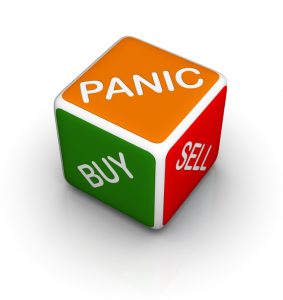Can Penny Stocks Protect Your Portfolio From Disaster?
 Youll often hear irrational exuberance used to describe investor behavior during the 90s. So what words can we use to describe the investors of today?
Youll often hear irrational exuberance used to describe investor behavior during the 90s. So what words can we use to describe the investors of today?
Id go with risk averse.
Now more than ever, investors are scared of the downside. And people are going to extremes to protect their investments from the possibility of heavy losses.
Risk aversion is one of the key drivers behind golds record-breaking climb, not to mention the historically low yields of Treasuries. And its giving asset management companies and hedge funds a reason to create new products.
One of these new products is quickly gaining in popularity.
Theyre called tail risk funds.
Tail risk is a term used to describe an extremely low probability event. In theory, these types of events are expected to have less than half a percent chance of occurring.
In the financial markets, tail risk events are essentially events that cause market crashes. Lehman Brothers bankruptcy is one example.
Unfortunately for investors, tail risk events seem to occur with greater frequency. And thats why investment in tail risk funds is growing rapidly particularly in todays uncertain environment.
Heres the deal
A tail risk fund seeks to protect investors against catastrophic market moves. In normal times, these funds lose money. But when a crash occurs, theyre expected to pay off in a big way.
How do they hope to profit during market meltdowns?
In order to accomplish their goals, tail risk funds use complex investment products and strategies. Were talking about options, credit derivative swaps, yield curve strategies, and volatility products.
As a result, tail risk funds arent for everyone. Many investors dont like to invest in something that regularly loses money. However, if risk aversion is your main goal, these funds might suit your needs.
So what does tail risk have to do with penny stocks?
Mostly, it got me thinking
Can you protect your portfolio against disaster with penny stocks?
On one hand, penny stocks can be chancy. Since many investors consider penny stocks to be riskier assets, theyre often the first to go from the portfolio in uncertain times.
But heres the thing
While penny stocks listed on the major exchanges are often closely correlated with the overall markets, those listed on over the counter markets can often be completely unconnected to the broader market.
You see, OTC penny stocks tend to be very small companies. And investors are usually in them for a very specific reason. A company may have a patent on a promising technology. Or it could be a mining company looking to strike gold.
Whatever the reason, investors typically wont be scared off from a small company they believe in just because the overall market is selling off.
Look, Im not suggesting OTC penny stocks can replace the protection offered by tail risk funds. And you always have to be careful with any kind of OTC product. But if regularly losing money isnt your idea of protection, you can often get strongly uncorrelated returns from OTC penny stocks.
Yours in profit,
Gordon Lewis
Category: Investing in Penny Stocks




